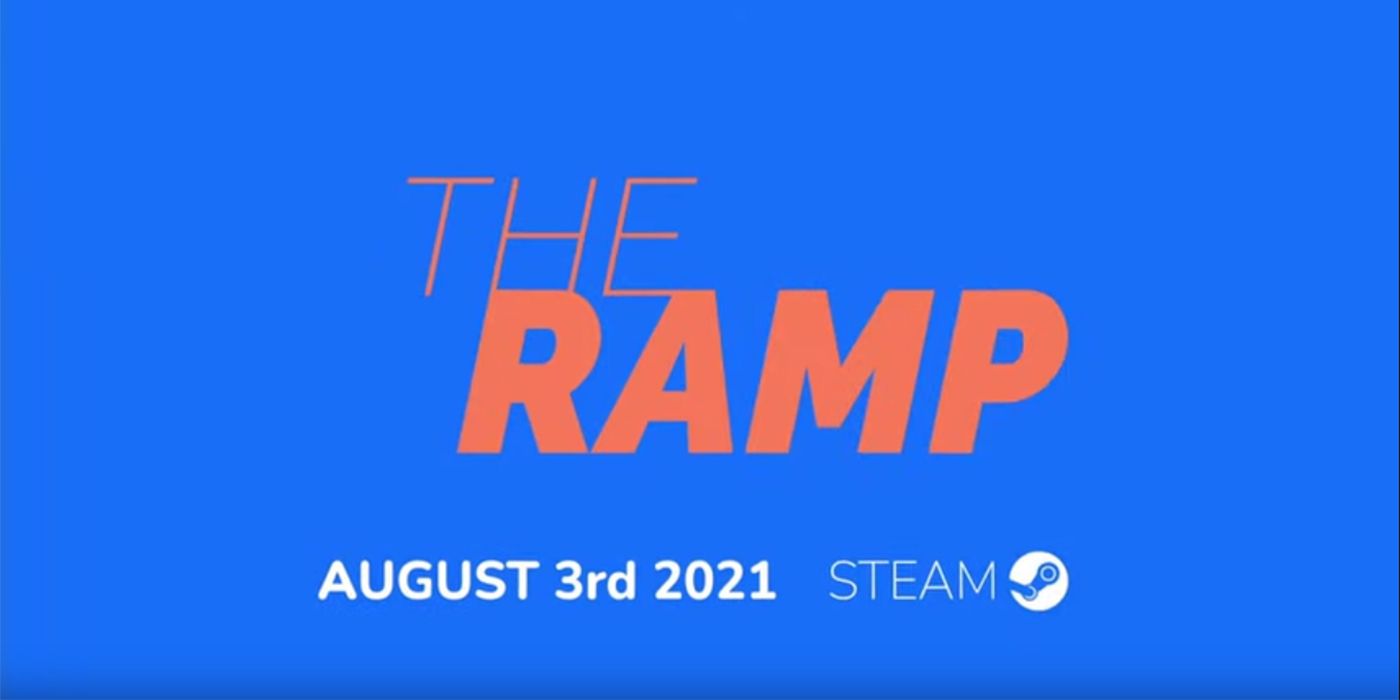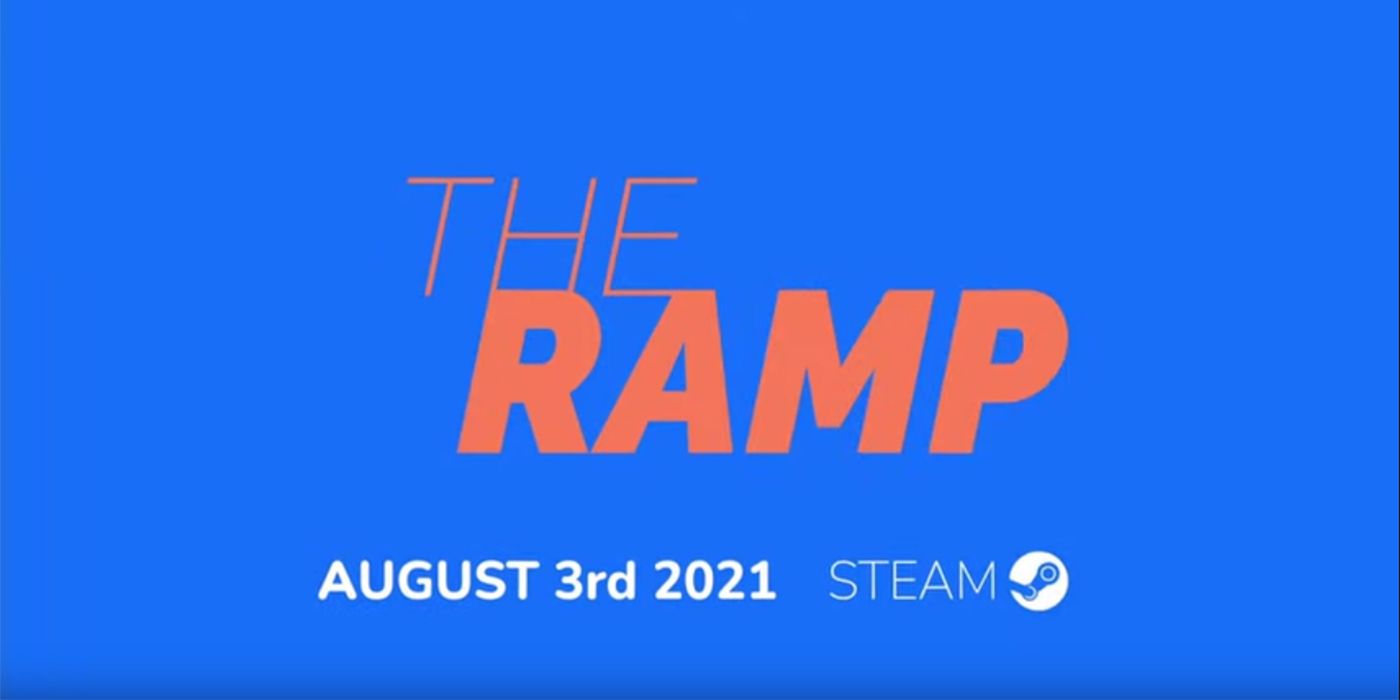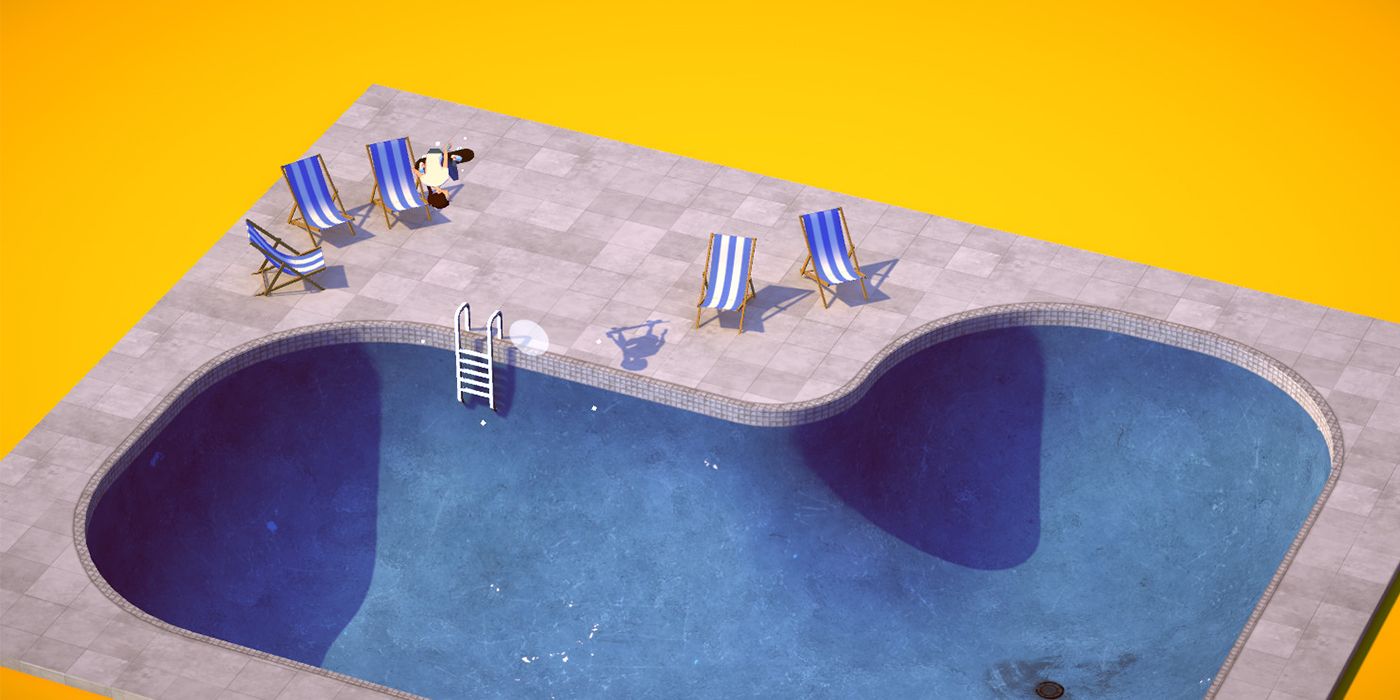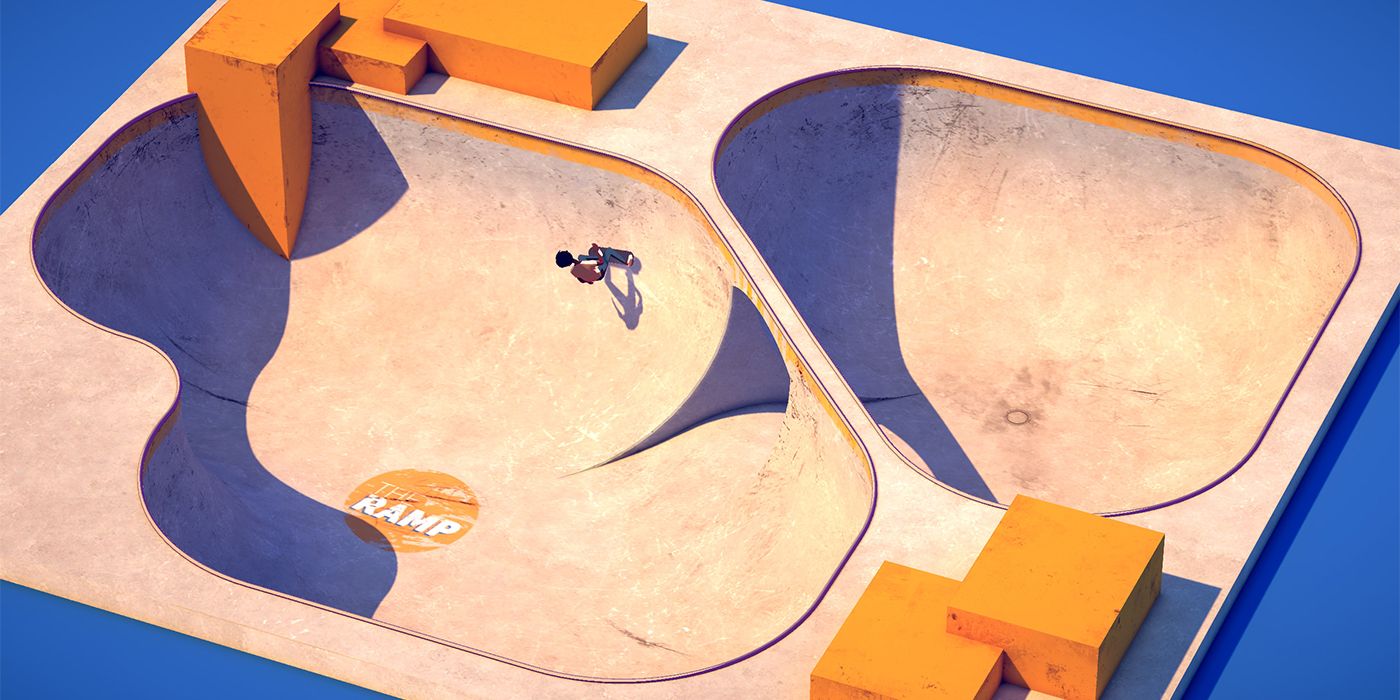

There is a lot of overlap between skaters and gamers, and that's manifested in a lot of skating game franchises in the past. However, these titles have been set towards more of an arcade-style game as opposed to recreating an authentic feeling that skaters feel on the board. The Ramp, from developer Paul Schnepf seeks to give the player the same feeling he has when skating down the vertical ramp and performing a trick successfully, even if it takes a few tries. Just like in a real skate park, there are no guard rails and the player will have to learn how to coordinate between their brain and their feet.
Paul Schnepf, or Hyperparadise, recently sat down for an interview with Game Rant ahead of The Ramp's release date on August 3. He discusses his want to create a skating game that just lets the player feel a certain flow, without worrying about objectives or unlockables to progress through. While Schnepf still likes games like Tony Hawk Pro Skater and EA's Skate, they weren't able to scratch the particular itch that Schnepf wanted in a skating game. He focused on recreating the sense of skating on a vertical ramp flawlessly with a certain progressive flow, as opposed to the games series with all the extra fluff.
RELATED: Skate 3: How To Speed Glitch
Q: Do you skateboard yourself?
PS: I actually started skateboarding because of video games. I think I was eight or nine years old at the time when I got Tony Hawk’s Pro Skater 4 and I just loved it. Then I made my parents buy me a skateboard for Christmas, then I started skateboarding and have been ever since. It has always been this source of peace and pleasure in my life.
Q: What kind of research does making a skating game require?
PS: I had to look into physics a bit because I knew intuitively how it should feel and how you skateboard a vert ramp in real life. There’s a technique of how to gain speed there, like if you ever notice skaters in a vert ramp or a bowl never have to set their foot on the ground to gain speed. It’s purely by bending and extending your knees at the right places. I had to take a closer look and figure out exactly what lets you gain speed there.
It kind of works like spinning in an office chair and extending your knees there and you notice you will gain rotation and speed there because you move weight further away from the center of the rotation. I’m no physics guy, but at one point I even read a scientific paper about it. In the end, it turned out kind of simple. I mean, it’s obviously not a realistic game, but the specific feeling in how it works is actually fairly close to how it is in reality.
Q: What are some of your favorite skating games? How did past games impact The Ramp?
PS: The fourth Tony Hawk Pro Skater game was my first and actually brought me to skateboarding in real life, so of course it always has a special place in my heart. But to be honest, I never really liked the arcade-iness of Tony Hawk’s Pro Skater. I always wished for a more realistic skateboarding game that was closer to how it feels in reality. I think it was in 2006 when EA announced Skate, I remember reading a very short article about it in a German video game magazine. I was heartbroken because I didn’t own a console and they released it as a console exclusive. At one point, a couple of years later, I bought an Xbox just to play Skate. So definitely, I think EA’s Skate series is one of my most favorite skating games.

Q: With no progression system, what do you hope will keep bringing players back for more?
PS: I almost take pride in doing nothing to bring players back to The Ramp. They should play it as long as they enjoy it and I’m totally fine with them playing something else. That’s something I dislike in a lot of games when they try too hard to consume as much of your time as they can. So this is kind of the opposite. But, I still play it for relaxation at some points, and I have played it a lot by now.
I think if it’s the right game for you, then there’s a pretty good chance you’ll pick it up every now and again to incorporate those 10 or 15 minutes of flow into your day. It’s probably nothing you’ll play eight hours straight but I’m totally fine with that. I think it never really gets boring because there is no content to play through. There is just this feeling that never wears out and you can continue to play it.
Q: Why do you prefer the minimalist design choice over games with a lot of “fluff?”
PS: The arcade-y kind of feel and also the features you wouldn’t normally expect from this type of game like different unlockable characters, tons of skins. There are different characters, but only like male/female, black/white, so you can just pick whatever suits you best. But there are no skins for the character or lots of achievements. I don't necessarily dislike those kinds of things, it’s just I rather that I focus on one thing and do that really well. It also matches what you can do as a single developer, your resources are just very very restricted. I figured that, rather than do something that is 60% on all sides, I’d rather focus on one very specific feeling and idea to try and do that as well as I can.
Q: What makes the skating controls in The Ramp “hard to master”?
PS: First of all, it’s this bumping mechanic I’ve already mentioned, it’s how you gain speed. It’s something new for most people, especially if you haven’t skateboarded in real life it takes a while to wrap your head around it. Because it’s versatile, and you can use it in a couple of different ways. You can gain speed while going up the ramp, when going down the ramp, in the corner, so learning this and learning how to use it to gain the optimal flow and speed definitely takes some time. Then, of course, there are also the tricks in the game and you can spend a lot of time setting your own goals. I’m still coming up with new challenges for myself, so I guess you can do it for quite a while.
RELATED: It's Important Skate 4 Nails the Basics

Q: Did your work on Islanders with Grizzly Games have any impact on The Ramp?
PS: You can find this minimalist approach in everything I’ve worked on, hopefully. Superfly, Islanders, and The Ramp, they definitely share similar traits. As I said earlier, I appreciate a design philosophy where I'd rather pick one idea or concept that you really wanna bring across and just focus on doing that and making it as good as you possibly can. I think that the experience, what we learned from making Islanders and Superfly, definitely impacted how I worked on The Ramp.
I also definitely owe thanks to my mates at Grizzly Games, because we still regularly talk about what we are working on, sharing progress, and giving feedback. They definitely have been a big help, especially during the pandemic where I’d not had access to a lot of playtesters or people who could give feedback on your work.
Q: Would you like to do more with The Ramp in the future?
PS: I don’t know yet. It definitely depends on the general reception and how it goes. I definitely would love to see it on different platforms, especially Nintendo Switch and mobile. I think they would fit the way you usually play the game.
Q: Is there anything else you’d like to add?
PS: Big thanks to everybody who supported me on the way. Because even when you’re developing the game on your own, there are a lot of people helping. As I mentioned, Jonas and Friedemann from Grizzly Games were a big help and also, I’m technically still enrolled at university, I’m also grateful for the support I’ve gotten from uni as well.
[END]
The Ramp releases on August 3, 2021, for PC via Steam.
MORE: Played Tony Hawk's Pro Skater? Now Watch Skate Kitchen and Betty



